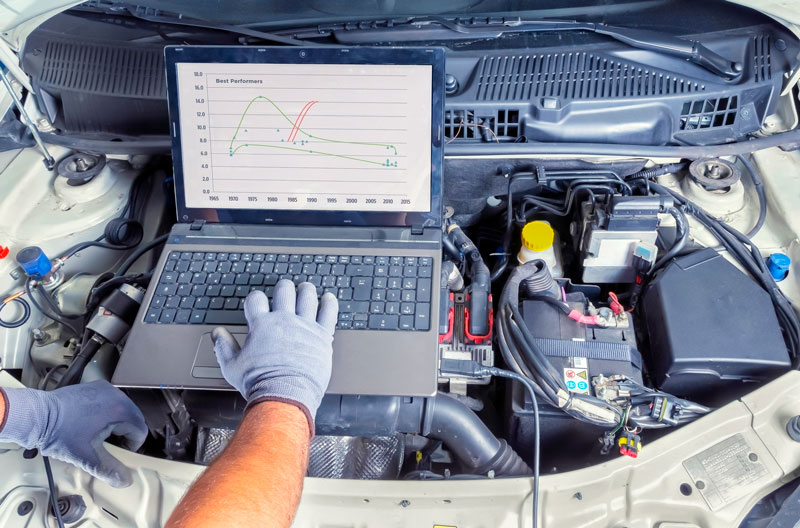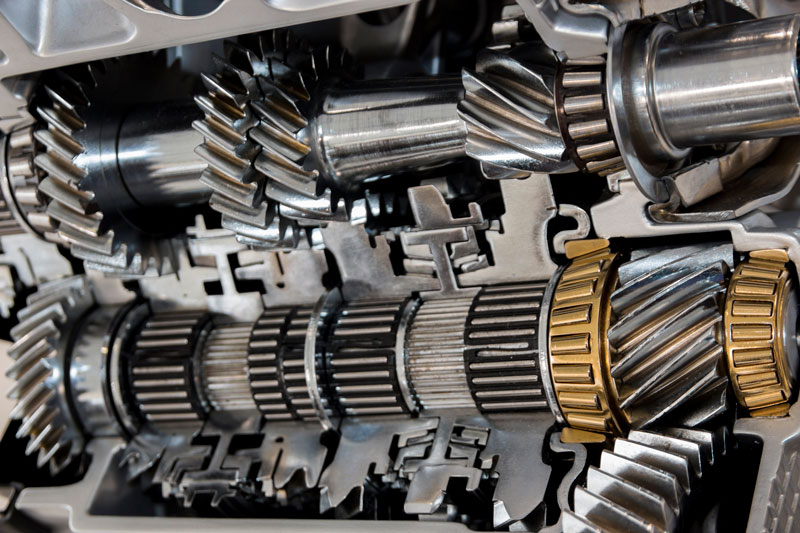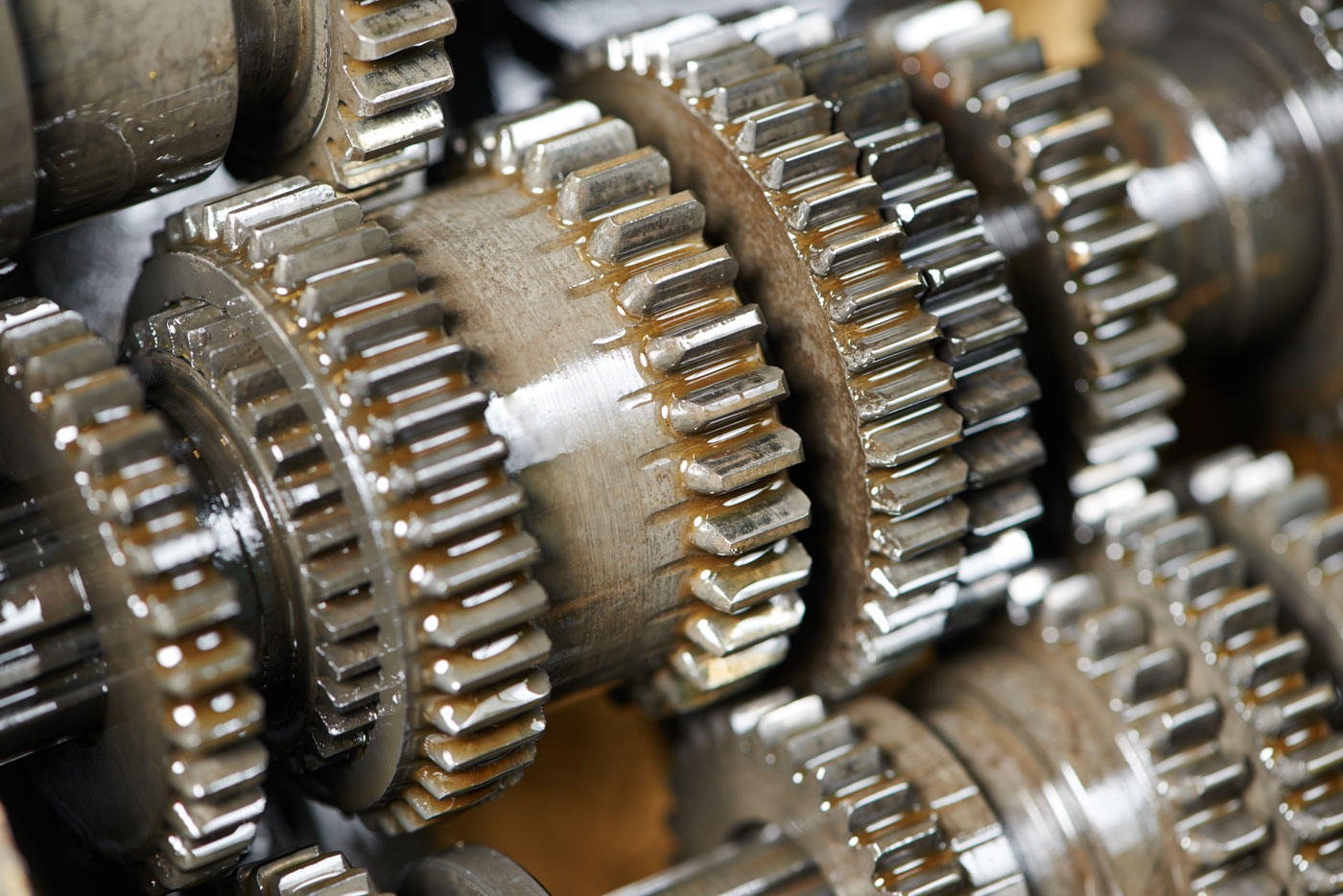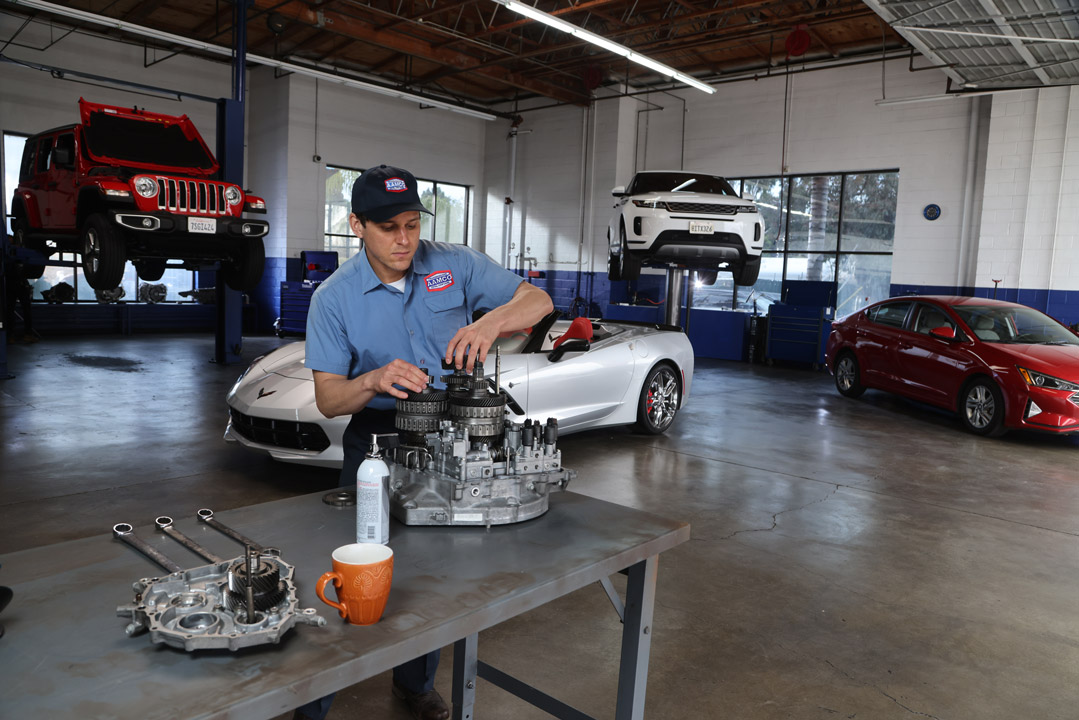When it comes to transmission problems, needing a full transmission replacement is just about the worst-case scenario. Transmission failure is no joke and it’ll cost you an arm and a leg to have repaired. In most cases, you’ll have the option to just fix specific parts that have failed. However, if you let things go too long, you may find yourself dealing with transmission failure and a much bigger transmission repair. But how do you prevent that from happening?
Related: Three Maintenance Tips to Avoid Transmission Problems
Related: Three Tell-Tale Signs Your Transmission is Failing
Related: Is A Transmission Fluid Flush Right For You?
Refresh Your Car Here
Bring your vehicle in to AAMCO Louisville today!
Dedicated to saving you thousands and keeping your car healthy. Learn More »
Pay Attention to Your Transmission Fluid
Adequate transmission fluid is key to a healthy transmission. Just the same as how you need regular oil changes to keep your engine running well, regular transmission fluid replacement and/or flushes will help keep your transmission running smoothly. It helps lubricate moving metal parts, minimizing friction that causes extra wear and even overheating. There are a few key aspects to pay attention to with your transmission fluid.

Make Sure You Have the Proper Amount – Not Too Much or Too Little
Whether you top off your transmission fluid in between services or you just had transmission maintenance done, ensure the proper amount of transmission fluid is used. You’d probably guess that using too little transmission fluid would cause problems, but that’s also true of using too much. While too little will mean improper lubrication, too much can also throw off the pressure inside the closed system of your transmission.
Make Sure the Correct Type of Transmission Fluid is Used
Every car has a particular type of engine oil, coolant, and transmission fluid that it’s built to use. Using the incorrect type or grade can cause a lot of problems for your car. Also consider the cost and quality of the fluid you use. You may buy the right grade but a cheaper, and potentially lower quality, fluid that may not protect the parts in your transmission as well as they could or should.
Keep Up with Regular Transmission Fluid Flushes
Over time, your transmission fluid naturally picks up contaminants. It’s a good idea to keep an eye on your transmission fluid like you would your engine oil. Check the level, consistency, and even smell to make sure it hasn’t gotten too low, too thick and contaminated, or is even burnt from an overheating transmission. If you notice any of those problems, you’re overdue for a transmission fluid flush and putting it off too much longer could result in transmission failure.
Keep Your Cooling System Healthy
It may sound strange, but your car’s cooling system helps keep your transmission healthy too. The cooling system helps maintain a healthy operating temperature under the hood of your car. If your coolant is too low or old – or any parts in the cooling system are failing – it can cause your engine and transmission to overheat, resulting in engine and transmission failure if it continues for too long.

If Your Engine is Overheating, so is Your Transmission
Both your engine and transmission are closed systems that are interconnected by the cooling system. While engine oil and transmission fluid are kept separate, the cooling system travels through both. That means if your engine temperature is too high or overheating, your transmission is too. Ignoring that engine temperature gauge that looks a bit high could cause a lot of damage to both your engine and transmission.
Be Mindful of Your Driving Habits
Finally, you can help prevent transmission failure and major transmission repairs just by paying attention to your driving habits. If you tend to have a lead foot and rev your engine a lot, that’s causing extra wear to your transmission. It’s also good to be mindful of your gear-shifting habits, including making sure your car comes to a complete stop before shifting from Park or Drive into Reverse – and vice versa.

Don’t Tow Heavy Loads
It’s also important to be careful about towing heavy loads, even if your car is built for that purpose. Pay attention to the manufacturer’s recommendations about towing and don’t push it. Heavy loads put a lot of extra strain on your transmission and will ultimately speed up the wear on parts inside your transmission.
Need a Transmission Repair in Louisville? Call AAMCO’s Mechanics!
No matter what your routine maintenance or car repair needs are, the expert mechanics at AAMCO Louisville are here to help get you and your car safely back on the road. Easily make your appointment online or give us a call – we’re happy to answer your questions.
How to Tell if Your Car’s Transmission is Slipping
You’re cruising down the road, windows down to enjoy the fresh air – and suddenly your car doesn’t feel as smooth as usual. Maybe you hear engine revs, feel hesitation, or feel vibration. There are a number of signs you may be dealing with transmission slipping....
read moreCrucial Signs for Finding the Right Transmission Repair Shop in Louisville
The right mechanic and transmission shop are essential when it comes to keeping your car’s transmission healthy. Whether it’s time for routine maintenance or you’re dealing with transmission problems, you want to feel confident. If you’re in the market for a new...
read moreThe Most Common Signs of Transmission Failure
Have you noticed changes in how your car drives? If you’re worried about your car, you may be wondering what you may be getting into when you take it to a mechanic. Pay attention to which signs and symptoms you notice with your car. In particular, there are a few...
read more



